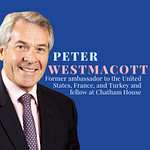Generous welfare states are losing their key characteristics, not least in Sweden, where privatisation of funding has proceeded privatization of provision, beginning in the 1990s. Supplementary exclusionary sources of welfare in healthcare, education, and social care, have proliferated throughout European welfare states under the neoliberal agenda that has dominated debate across the developed world. Rather than full privatisation, we see semi-private solutions, in which the citizen becomes the consumer, but remains subsidised by the state in their pursuit of private welfare, via tax breaks that benefit the richest in society most, rather than those with the greatest need. At the same time, private providers have been able to free-ride on the state, for example by hiring like doctors and teachers trained on state-funded courses, whilst the divided welfare state erodes the more generous, universal system by undermining the trust in it and the willingness of people to contribute to it. Ultimately, it replaces one view of social policy as an investment, something that generates wealth and contributes to the future, with another, of social policy as a cost, that takes up resources rather than generates them.
John Lapidus' The Quest for a Divided Welfare State: Sweden in the Era of Privatization (Palgrave Macmillan, 2019) charts the development of this process in Sweden, beginning with the privatisation of provision, such as private hospitals and tutoring, and how it lays the groundwork for private funding, which puts pressure on existing generous and universal welfare systems sustained by the public sector. In our discussion, we identify the methods through which neoliberal advocates promote privatisation, and how ongoing privatisation becomes self-reinforcing to nullify opponents, win over ambivalent actors, and dominate the debate in the political sphere. We end on an optimistic note, looking at the education sector and discussing what we can learn from debates in this area to promote and restore equality throughout the welfare state.
John is currently a Research Fellow at the School of Business, Economics and Law within the University of Gothenberg in Sweden, where he earnt his PhD in 2015. Prior to John’s academic career, he spent several years as a journalist, and also spent time working in Nicaragua for the Swedish-Nicaragua Friendship Association, an international NGO that helps communities build self-help organisations and tackle poverty.
Visit empoweredbelonging.substack.com to join the discussion.
Go to bit.ly/NBNAudience to help Leo understand his audience and make podcasts more tailored to you, and visit bit.ly/Leo-Feedback to offer feedback.














Share this post